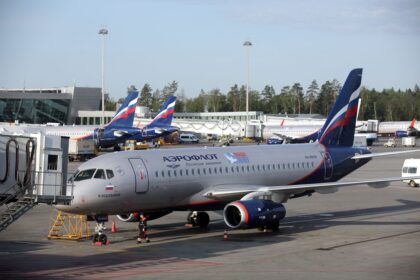**Russia’s Obsession with Alaska: A Deep Dive into Imperialist Narratives**
The Bering Strait, which separates Russia and the U.S., has been at the center of a heated debate in recent years. The planned meeting between U.S. President Donald Trump and Russian counterpart Vladimir Putin on August 15 was seen as an opportunity for Russia to reclaim its “lost” territory, Alaska.
**A History of Imperialism**
Russia’s obsession with Alaska dates back to the 18th century, when Ivan Fedorov discovered the North American coast in 1732. Russian fur traders flocked to the area, and the first permanent settlement was established in 1784. The Bering Strait was named after Vitus Bering, a Danish-born Russian explorer who made the first landfall there in 1741.
However, Russia’s colonization of Alaska was not without its challenges. Relations with Alaskan natives were often tense, and many Aleuts were enserfed, while Tlingits fought Russians in the Battle of Sitka in 1804.
**The Sale of Alaska**
As the costs of maintaining North American settlements outweighed the benefits, Russia decided to sell Alaska to the U.S. for $7.2 million in 1867. This decision was met with resistance from Russian imperialists, who mourned the loss of “Russian America.”
Today, many Russians perceive the sale as treason or a tragic mistake, while others believe it was a lease for 99 years that was never fulfilled. According to this myth, the Soviet Union decided not to take the peninsula back in 1966.
**Rhetoric and Propaganda**
The renewed rhetoric on “Russian Alaska” is seen by some as an attempt to project strength and pressure the American side. However, experts believe that Russia’s Alaska narratives are primarily propaganda aimed at catering to the Russian imperialist public.
Russia expert Ryhor Nizhnikau linked the renewed rhetoric to Putin’s desire to avoid Trump’s ultimatum and keep the dialogue going. He emphasized that this is not a serious attempt to take the peninsula back but rather a way for Russia to project strength and maintain its narrative of being under threat from the U.S.
**The Significance of Alaska**
Alaska has become a symbol of Russian imperialism, with many Russians seeing it as a lost territory that was unfairly taken by the U.S. The debate surrounding Alaska reflects Russia’s obsession with the U.S., which is often portrayed as its main foe.
As tensions between Russia and the U.S. continue to escalate, the rhetoric on Alaska serves as a reminder of the deep-seated issues that underlie their relationship.












